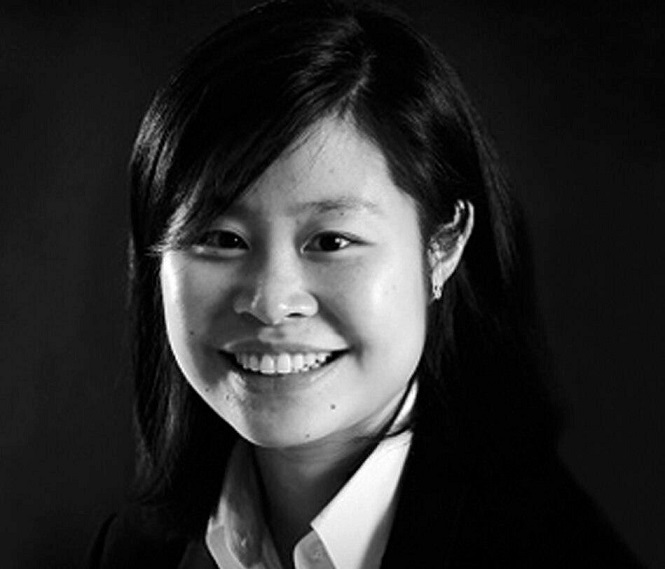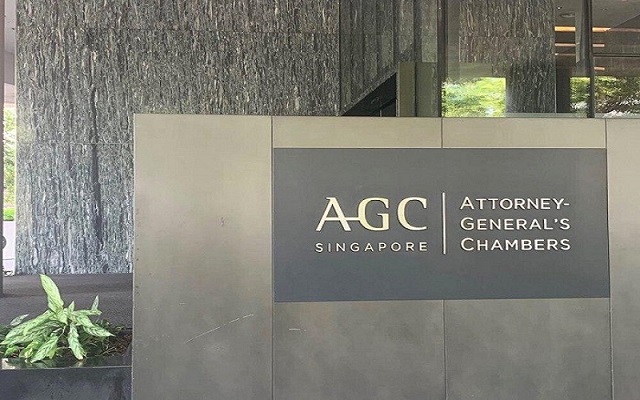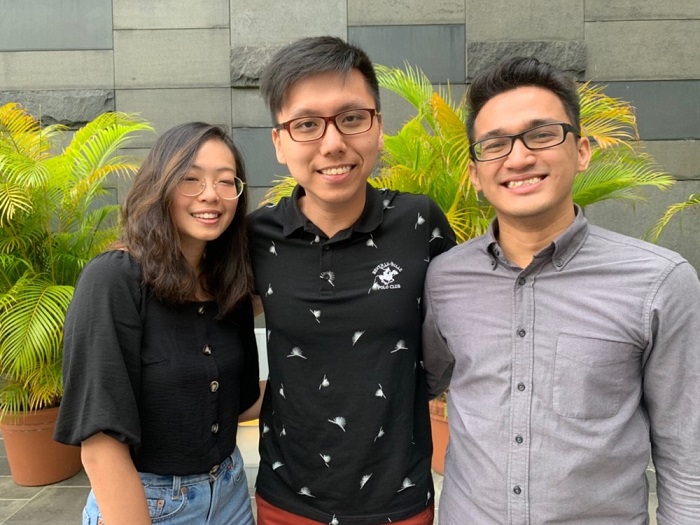
Ms Diana Ngiam. Photo credit: Quahe Woo & Palmer LLC
Many law students cite criminal law as the area that inspired them to study law in university, probably due to dramatized courtroom scenes portrayed on TV. While criminal law in real life may not be as exciting as on TV, we still wanted to find out more about this aspect of law. Lucky for us, we had the privilege of interviewing Ms Diana Ngiam about her life as an experienced criminal defence practitioner!
Upon making ourselves comfortable, we began the interview with the usual question that all Year 1s are asked when they are admitted into law school.
Why Law?
“Frankly, I chose to read law because I got interested in courtroom dramas, watching The Practice.” Of course, Ms Ngiam qualified this with the obligatory ‘practice-is-different-in-real-life’, but it was still interesting to know that a prominent member of the criminal law sphere could have been inspired by television programs just like many of us.
Ms Ngiam also added that another source of inspiration was high-profile criminal cases in the newspapers that really piqued her interest in the field.
Internship with Subhas Anandan
Given her firm interest in criminal law, Ms Ngiam interned with the late Subhas Anandan after her first year in law school. Mr Subhas Anandan was a founding member of the Association of Criminal Lawyers of Singapore, and was one of the trailblazers in the field of criminal law in Singapore.
We asked Ms Ngiam for 3 words that she would use to describe her internship under Mr Anandan, to which she replied, “stressful but exciting”. She encountered many high-profile cases for which the stakes were often very high for both parties, which made the experience exhilarating and scary in equal measure.
The internship left Ms Ngiam with a lasting impression of what makes a strong criminal lawyer. As she noted, he was a persuasive speaker who had a commanding presence and “an amazing memory” – while at trial in court, he would not have to pen anything down, and could remember the finest details of the evidence presented in court. He was also an extremely sharp thinker, and gave Ms Ngiam a masterclass in cross-examination on multiple occasions.
Apart from witnessing Mr Anandan’s great work ethic, she was also privy to another side of him– he was kind, soft-hearted and even “childlike” at some points. She fondly recounted how Mr Anandan enjoyed eating snacks, and how despite having certain dietary restrictions, would snack on a few peanuts or potato chips whenever he caught his colleagues snacking in the office.
It was this memorable stint with Mr Anandan that helped Ms Ngiam decide that she would like to pursue criminal law.
A career as a criminal lawyer
Ms Ngiam’s steely and determined appearance belies the fact that she has had her fair share of challenges in practice. When asked about the most impactful case that she has worked on, she cited the case in which she appeared before the court as first chair, for the first time. This was the case of Public Prosecutor v BDB [2018] 1 SLR 127; [2017] SGCA 69, a case where a mother was convicted of voluntarily causing grievous hurt to her son, leading to his death.
When asked about why it was so impactful, she said: “I was expecting to lose, but I was not expecting to lose that badly,”. She then revealed that the loss hit her especially hard because she felt like she was personally responsible for it happening. But Ms Ngiam was quick to provide a quote-worthy comeback: “But I think things like that are good because you should never, ever stop questioning yourself; because when you do, I think you will realise that you are becoming too complacent.”
On the topic of how rarely criminal defence lawyers manage to secure a win, Ms Ngiam was upfront about the reality of the current situation. She admitted that the prosecution and defence are not operating on a level playing field, and stated that the odds are “usually stacked against” criminal lawyers. There is often an imbalance of information between the parties involved, with the prosecution having access to “all the resources”. Accused persons might also not have the resources to hire independent investigators to conduct investigations, and given the degree to which the final verdict rests on the results of such investigations, it would be greatly disadvantageous to the accused if these investigations have an unintentional bias towards the prosecution. Ms Ngiam believes that the easiest way to correct this problem would be to allow the accused to gain access to counsel at the earliest stage of investigations, before any interview is conducted by the police, so as to protect their interests.
Given the seemingly advantageous position of the prosecution in criminal cases, a question that arose was: why defence instead of prosecution? While Ms Ngiam admitted that she has “toyed with the idea” of joining the AGC, she reflected with levity that she simply could not see herself practising on “the dark side”. She sees more value in helping and being the voice for the “underdog”.
After this, we moved on to discuss some controversial topics.
On Euthanasia
We began by asking about her views towards euthanasia, to which she replied “I don’t know man.”
After probing her further, she said: “I don’t think Singapore, as a society, is ready to accept euthanasia, although it is something I think we should not rule out because I see the point in allowing it, but of course under very strict circumstances.” She continued, “You are basically allowing people to fly to Switzerland to die, and if this happens more and more, you can’t simply pretend that this isn’t happening in reality.”
We generally agree with Ms Ngiam, especially considering the fact that healthcare in Singapore is expensive to the point that many Singaporeans joke about preferring death over facing hospital bills. Perhaps it is time that we confront legislating euthanasia as a society, rather than leaving it as an elephant in the room.
On Drugs
Singapore has very draconian drug laws, with our Minister for Law, Mr K. Shanmugam, once famously saying: “We want a drug-free society. Not a drug tolerant one.”
Ms Ngiam was candid in her views that the death penalty for drug-related offences was not working in Singapore. Elaborating on her statement, she said: “Once a person is dead, you can’t undo that. But with life imprisonment you can and I think people make mistakes so… To me it is a very scary thing, to decide that a person should just die.”
Given her anti-death penalty position for drug traffickers, we pressed her to suggest reforms she would like to see in drug laws.
With regard to drug abusers, Ms Diana said: “I don’t think prison is the most effective tool of drug abusers because I think imprisonment (1) makes them [interact] more with people of the same kind, (2) takes them out of society for some time, and they will face problems of reintegration into society.” Leaving no room for doubt about her feelings, she emphatically stated that “prison is a clumsy tool” and that “we should put more money into drug [rehabilitation]”. She also suggested that more effort could be put into researching on how we could rehabilitate drug abusers so that we can prevent them from “going in and out [of jail]”.
In the writer’s humble opinion, it is clear that our drug laws often catch traffickers who are simply low-level operators at the bottom of the drug syndicate. These traffickers are often Malaysians, who are out to make a quick buck, and who often do not know the laws of Singapore (although a separate argument could be made that ignorance of the law is no excuse). Indeed, our drug laws have undergone considerable changes, with the new section 33B of the Misuse of Drugs Act (Cap 185, 2008 Rev Ed Sing) allowing the court to exercise its discretion not to award the death penalty where the drug trafficker has substantially assisted the Central Narcotics Bureau (CNB) in disrupting drug trafficking activities. These are early days, but certainly steps in the right direction to temper the harshness of our drug laws.
When asked about whether we should legalise the usage of drugs, Ms Ngiam said: “I don’t think we should legalise drugs. We are already facing so much problem with smoking … and I don’t see the benefit of drugs at all … So, no, I don’t think we should legalise drugs.” For what it is worth, we humbly agree with Ms Ngiam’s opinions.
The future
We asked Ms Ngiam about what she envisions herself doing in a decade’s time and she frankly admitted that she has never been one to make long-term plans. Nonetheless, she does hope that her future self will still be practising criminal law. As much as she acknowledges that her line of work can get tiring and disappointing, she ultimately still enjoys what she is doing, and the rare wins in court continue to be a motivating force for her.
Advice for budding lawyers
Ms Ngiam started off by saying that young lawyers need to have common sense, tenacity and “some fire [in them]”, as these traits are what enables lawyers to go far in criminal practice. “I need to see the ability to show aggression when the situation requires in the courtroom when you communicate with the other party, the prosecution,” she added.
Lawyers who desire to practice criminal law must also “like it”, and have to be aware that they will eventually experience a trade-off in their remuneration. Speaking from personal experience, she admitted that the difference in remuneration will become more apparent as one rises up in the ranks, by virtue of criminal lawyers “not bringing in as much money” to firms as other fields of law.
For lawyers who can accept the reality of the pay cut in criminal law, Ms Ngiam can assure them that there will be a welcoming community of mentors who are “happy to help”. She believes that the Law Society of Singapore’s Criminal Legal Aid Scheme (CLAS) functions as an appropriate entry point into criminal law practice – it allows one to “get their hands dirty” with actual cases and to experience going to court, while the stakes are “not as high”. The mentorship programme in CLAS would allow junior lawyers to receive guidance while judging for themselves if criminal law is “what they want to do”. Ms Ngiam also mentioned, as an aside, that for lawyers who are unwilling to give up commercial practice, CLAS can be a platform for them to contribute in their own time.
As for law students who are still years away from practice, and whose immediate concerns would be geared more towards their academic work, Ms Ngiam had a short but important nugget of wisdom: have fun and don’t study so hard! Having accumulated years of experience under her belt, she lamented that, “once you start work, there really is no break”. Even when one takes a break from work, they will come back to “even more work”, and they might still be worrying about their cases even when on holiday.
Ms Ngiam also noted the trend of students increasingly “piling on” internships, as she has seen more first-year and prospective law students in the pool of interns. While she does acknowledge the logic of seeking internships in order to better understand a firm’s culture and ‘fit’, she believes that students will ultimately have to contend with, and be comfortable with, a degree of uncertainty regarding their future. Even for her, she could not have known what criminal defence entailed when she first took the plunge into reading law in university.
Another piece of advice that Ms Ngiam wished to emphasise on was to make “genuine and good friends” in school. These friends from law school will function as a robust support system for students when they graduate and enter practice, and they can come in handy when one needs a work referral in future.
Work-Life Balance
As for maintaining a life outside of work, Ms Ngiam enjoys running, and takes advantage of her office location in Dhoby Ghaut to take a jog through the scenic central business district in the evenings to destress. Other joys in her life include eating good food, and unwinding at home with her six cavoodles.
Originally published on the previous CJC website on December 9 2019.
Clarine See and Toh Ding Jun
*The views and opinions expressed in this article do not constitute legal advice and solely belong to the author and do not reflect the opinions and beliefs of the NUS Criminal Justice Club or its affiliates.



